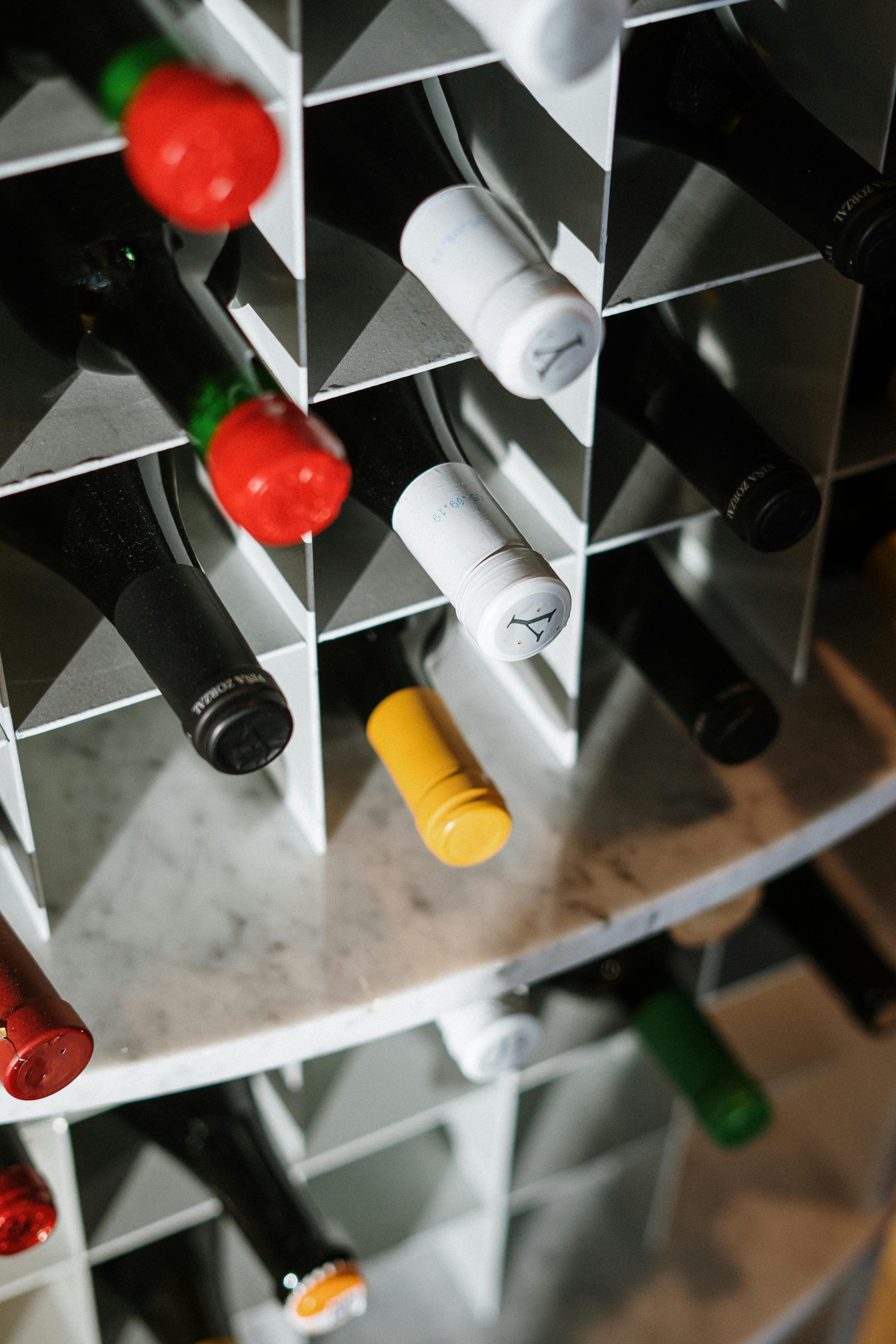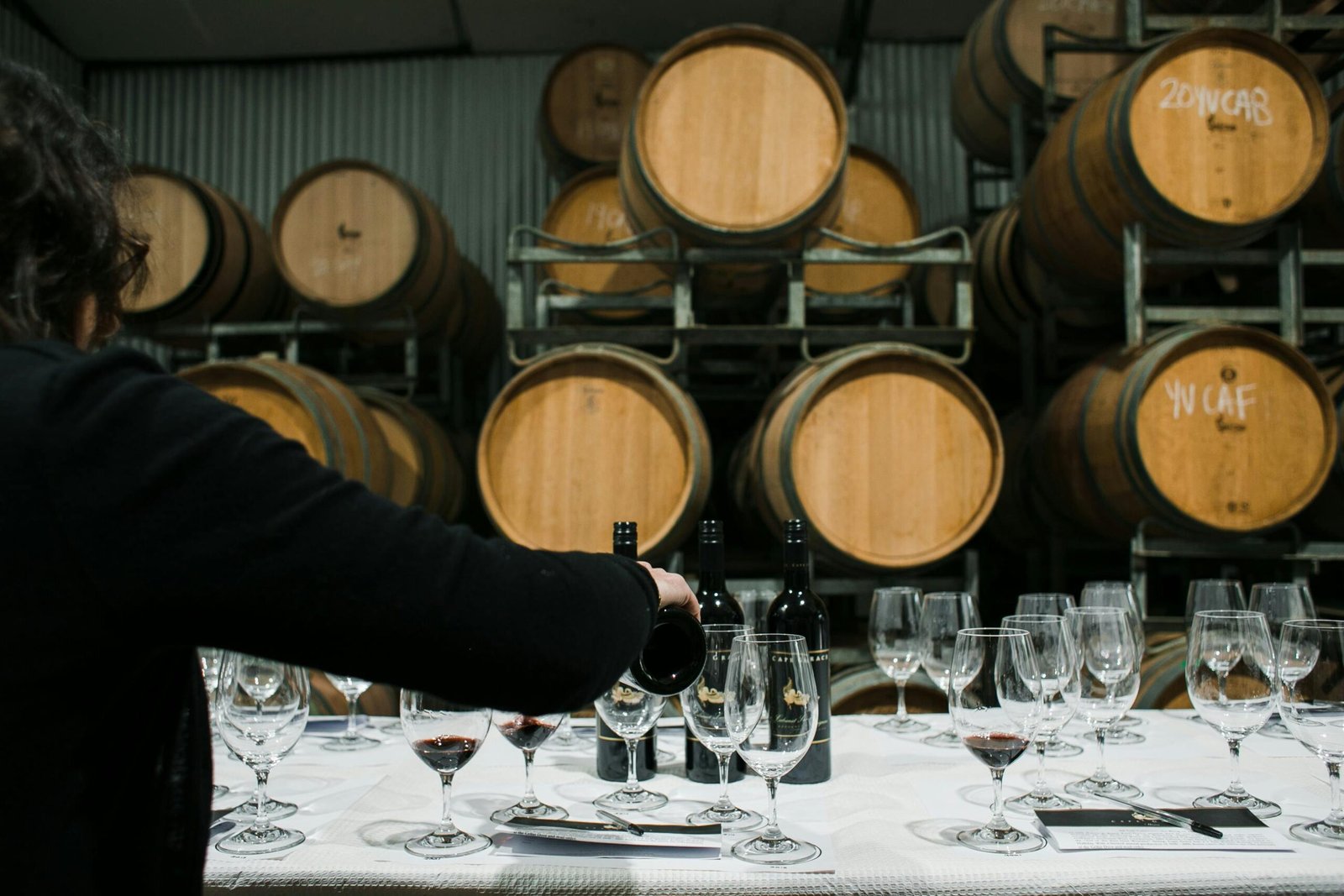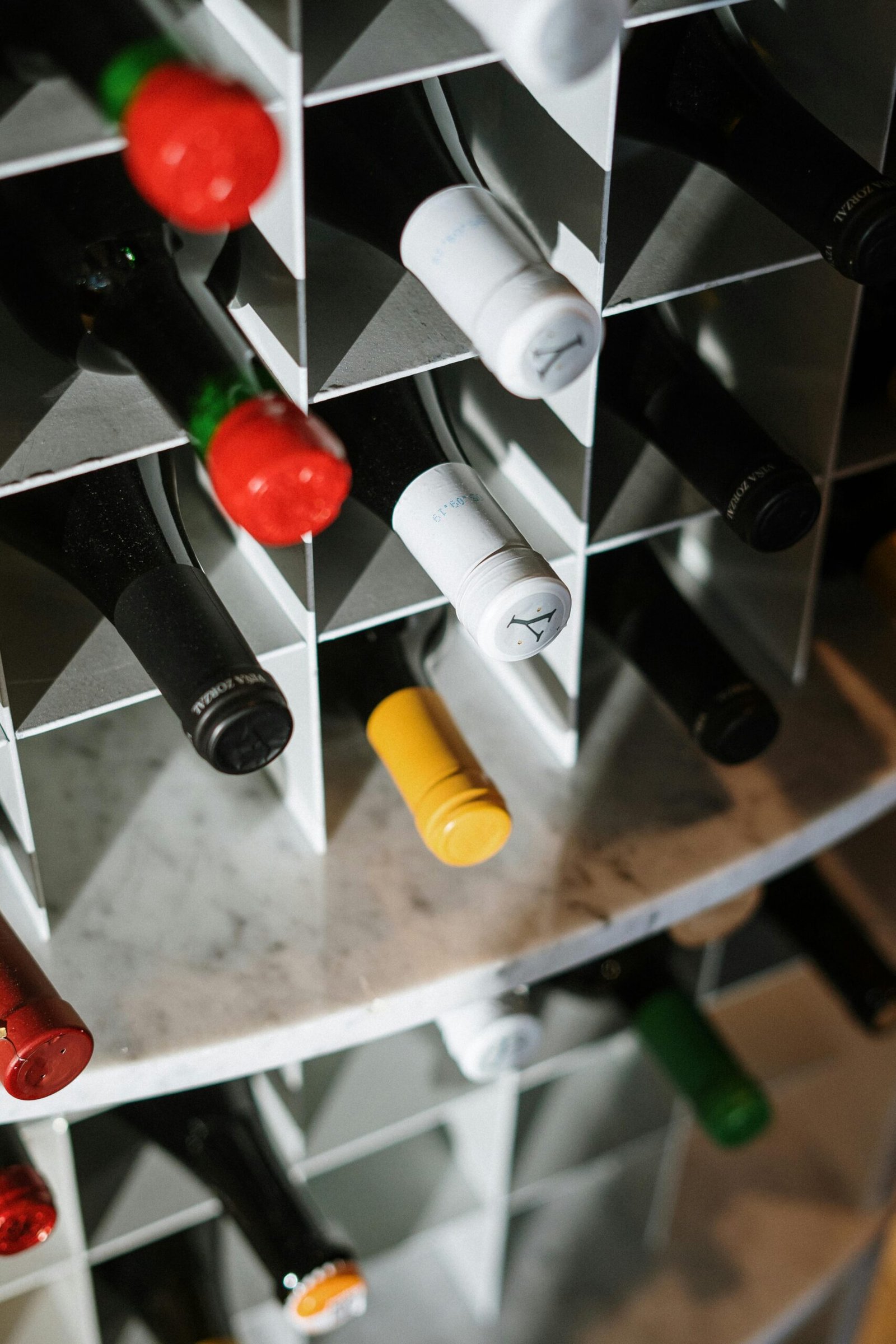Ever wondered about the enigmatic world of sommeliers? Curious to know what exactly they do and why they are so highly regarded in the realm of fine dining? In this article, we unravel the mystique surrounding sommeliers and explore their role as wine connoisseurs. Gain insight into the expertise and skills required to become a sommelier, and discover how these knowledgeable individuals enhance the dining experience with their impeccable wine recommendations and pairings. Whether you’re a seasoned wine enthusiast or simply curious about the art of wine, join us as we demystify the profession of sommeliers and uncover the secrets behind their refined palates and exemplary service.
Definition of a Sommelier
A sommelier is a highly skilled and knowledgeable wine professional who specializes in all aspects of wine service. They play a crucial role in fine dining establishments, wine bars, hotels, and even on cruise ships, where they are responsible for curating exceptional wine lists and providing expert guidance on wine selection and food pairing. A sommelier is not only a wine expert but also a customer service professional, ensuring that guests have a memorable and enjoyable dining experience.
Introduction to the role
The role of a sommelier has evolved over the years to encompass a wide range of responsibilities. They are not merely wine servers but are trusted advisors in the world of wine. A sommelier is responsible for building a comprehensive wine list, keeping up with industry trends, training staff on wine knowledge, and providing excellent customer service. They act as a bridge between the restaurant and the guest, ensuring that the wine selection enhances the overall dining experience.

Origin of the word ‘sommelier’
The word “sommelier” has its origins in the Provence region of France and has its roots in the Middle Ages. In those times, a “sommelier” was a court official responsible for the transportation and management of supplies, including wine, for noble households. As wine grew in importance and sophistication, the role of the sommelier also expanded to include expertise in wine selection and service. Today, the term is synonymous with wine professionals who have achieved a high level of skill and knowledge in the field.
Responsibilities and duties
The duties of a sommelier are vast and varied. They include wine selection and presentation, food and wine pairing, cellar management, maintaining wine inventory, staff training and education, and providing top-notch customer service. A sommelier must have a deep understanding of various wines, regions, and vintages, as well as the ability to curate a diverse and balanced wine list. They also play a vital role in training staff to ensure that they can effectively communicate the knowledge and passion of wine to guests. Overall, the sommelier is responsible for creating an exceptional wine experience for guests.

Becoming a Sommelier
Becoming a sommelier requires a combination of education, certification, training, and experience. While a formal education in wine or hospitality is not mandatory, it can provide a solid foundation for aspiring sommeliers.
Education and certification
Several organizations offer certification programs for aspiring sommeliers, such as the Court of Master Sommeliers, the Wine & Spirit Education Trust (WSET), and the International Sommelier Guild. These programs cover topics such as wine production, grape varieties, wine regions, professional wine service, and blind tasting. The certifications earned through these programs, such as the Certified Sommelier or Advanced Sommelier designation, add credibility to one’s expertise and enhance career opportunities.
Training and experience
Hands-on training is essential for aspiring sommeliers. This includes working in various wine-related roles, such as wine retail, wine bars, or restaurants with a strong wine program. Gaining experience in wine service, wine sales, and wine tasting allows individuals to develop their palate, deepen their knowledge, and hone their customer service skills. Many aspiring sommeliers also look for mentorship opportunities under established sommeliers, which provide invaluable guidance and insights.
Skills required
To excel as a sommelier, certain skills are essential. These include extensive knowledge of wines, superior tasting abilities, excellent communication skills, a customer service orientation, the ability to work under pressure, attention to detail, and above all, a passion for wine. A sommelier should be able to confidently navigate the complexities of wine, effectively communicate with guests, and provide exceptional service to enhance their dining experience.
Roles and Responsibilities
As mentioned earlier, a sommelier’s roles and responsibilities encompass various aspects of wine service and customer satisfaction. Here are some key areas where a sommelier’s expertise shines:
Wine selection and presentation
One of the primary responsibilities of a sommelier is curating a wine list that complements the restaurant’s cuisine and caters to its target audience. This involves selecting wines from different regions, considering factors such as varietals, flavor profiles, and price points. Additionally, a sommelier must ensure the proper storage and presentation of wines, including effective labeling, categorization, and organizing the wine list in a way that facilitates easy navigation for guests.
Food and wine pairing
Pairing wine with food is an art, and sommeliers are the masters of this craft. They possess a deep understanding of flavor profiles and how different wines can enhance the taste of various dishes. A sommelier can suggest the perfect wine pairing to elevate a dining experience based on the flavors, textures, and characteristics of both the food and the wine. Their expertise helps create harmonious and memorable combinations that enhance the flavors of a meal.
Cellar management
A sommelier is responsible for managing the restaurant’s wine cellar or wine inventory. This involves conducting regular wine inventories, tracking purchases and sales, and ensuring proper storage conditions to maintain the quality of the wines. They must also make informed decisions about when to rotate wines and when to suggest aging certain bottles for optimal enjoyment. A well-managed cellar is essential to provide guests with a diverse selection of wines and maintain profitability for the business.
Maintaining wine inventory
In addition to cellar management, a sommelier must keep track of the restaurant’s wine inventory. This includes ordering wines, coordinating with suppliers, managing stock levels, and ensuring that the wine list is up to date. By monitoring inventory, a sommelier can identify popular wines, identify gaps in the selection, and make informed decisions about new additions to the wine list. Accurate inventory management also helps in controlling costs and maximizing profitability for the business.
Staff training and education
To maintain a high standard of wine service, a sommelier plays a crucial role in training and educating other staff members. Whether it’s servers, bartenders, or other front-of-house staff, a sommelier must impart their knowledge and passion for wine to the team. This includes conducting wine seminars, tastings, and workshops to enhance the staff’s understanding of wine and its service. By elevating the knowledge and skills of the entire team, a sommelier ensures that guests receive consistent and exceptional service across the board.
Customer service
Customer service lies at the heart of a sommelier’s role. They are responsible for creating a welcoming and engaging atmosphere for guests and providing personalized wine recommendations based on individual preferences. A sommelier must be approachable, attentive, and knowledgeable, able to explain complex wine concepts in a way that is easy for guests to understand. By providing genuine and attentive service, sommeliers enhance the overall dining experience and build lasting relationships with customers.

Different Types of Sommeliers
Sommeliers can work in various settings and environments, each with its unique requirements and challenges. Here are some of the different types of sommeliers:
Restaurant sommelier
A restaurant sommelier works in fine dining establishments, where they are responsible for managing the wine program and providing wine service to guests. They work closely with the culinary team to create wine pairings that complement the restaurant’s cuisine. They are also involved in purchasing wines, maintaining the wine cellar, and training staff on wine knowledge and service.
Wine bar sommelier
A wine bar sommelier curates a wine list that caters to a specific clientele interested in exploring various wines in a more relaxed setting. They focus on creating a diverse and interesting selection of wines, often with an emphasis on boutique and lesser-known producers. Wine bar sommeliers excel at making wine accessible and approachable for all guests, enhancing their enjoyment of the wines on offer.
Hotel sommelier
In hotels with multiple dining outlets, a hotel sommelier oversees the wine program for the entire property. They collaborate with different chefs and managers to create wine lists that complement each outlet’s concept. Hotel sommeliers must have a comprehensive knowledge of various cuisines and be able to cater to a wide range of guest preferences.
Cruise sommelier
On luxury cruise ships, sommeliers are responsible for managing the ship’s wine program and providing wine service to guests. They curate an extensive wine list to cater to a diverse international clientele and work closely with the culinary team to ensure seamless wine and food pairings. Cruise ship sommeliers must have excellent customer service skills and the ability to adapt to different cultures and preferences.
Wine consultant
A wine consultant is a sommelier who works independently or as part of a consulting firm, offering their expertise to various businesses. They provide guidance on wine selection, staff training, wine list development, and cellar management. Wine consultants may also offer wine education courses and tastings to individuals or organizations looking to deepen their understanding of wine.
Skills and Qualities of a Good Sommelier
Being a successful sommelier requires a unique combination of skills and qualities that go beyond an extensive knowledge of wine. Here are some key skills and qualities that make a good sommelier:
Extensive knowledge of wines
A good sommelier possesses a deep and comprehensive knowledge of wines, including regions, grape varieties, production methods, and vintages. They stay up to date with the latest trends, new producers, and emerging regions, allowing them to provide valuable insights to guests. This knowledge empowers sommeliers to curate wine lists that are balanced, diverse, and tailored to the preferences of their clientele.
Superior tasting abilities
Tasting is a fundamental skill for a sommelier, as they must be able to assess the characteristics and quality of a wine accurately. Good sommeliers have a well-trained palate and can identify the aromas, flavors, and structural elements of a wine. They can determine the wine’s ageability, its potential for food pairing, and its overall quality through blind tasting.
Excellent communication skills
Being able to effectively communicate with guests is crucial for a sommelier. They must be able to explain wine concepts, flavor profiles, and wine regions in a way that is accessible and engaging for guests. A good sommelier can adapt their communication style to suit different audiences, whether it’s explaining the intricacies of a rare vintage to a wine enthusiast or recommending a suitable wine to a novice.
Customer service orientation
Sommeliers are at the forefront of providing exceptional customer service. They must possess a genuine passion for hospitality and enjoy interacting with guests. A good sommelier is attentive, approachable, and listens carefully to guests’ preferences. They aim to create a memorable wine experience by going above and beyond to exceed expectations.
Ability to work under pressure
In a fast-paced restaurant environment, sommeliers must be able to handle multiple tasks and make quick decisions under pressure. They need to adapt to changing situations, such as last-minute menu changes or unexpected wine substitutions, while maintaining composure and professionalism. A good sommelier thrives in high-pressure situations and excels in providing efficient service, even during peak dining times.
Attention to detail
Attention to detail is essential for a sommelier, as even the smallest oversight can have significant consequences. They must ensure that wines are served at the correct temperature, glasses are clean and polished, and wine labels are meticulously checked before presentation. A good sommelier takes pride in their work and pays careful attention to every aspect of the wine service.
Passion for wine
Above all, a genuine passion for wine is what sets apart a good sommelier. Their enthusiasm and love for their craft are evident in their interactions with guests and their dedication to continually expanding their knowledge. A good sommelier approaches the world of wine with curiosity, humility, and an eagerness to share their passion with others.
Benefits of Having a Sommelier
Having a sommelier on staff can bring numerous benefits to restaurants, hotels, and other businesses in the food and beverage industry. Here are some of the advantages of having a sommelier:
Enhanced dining experiences
A sommelier’s expertise in wine selection and food pairing can elevate the overall dining experience for guests. By recommending the perfect wine to complement each dish, a sommelier can enhance the flavors and create a harmonious balance between food and wine. This attention to detail and personalized service ensures that guests have a memorable and enjoyable dining experience.
Expert guidance on wine selection
Navigating an extensive wine list can be overwhelming for many guests. A sommelier’s role in providing expert guidance on wine selection helps guests make informed choices based on their preferences. By understanding the guest’s taste preferences, budget, and desired experience, a sommelier can recommend the most suitable wines, taking into account factors such as flavor profiles, pairing options, and personal preferences. This guidance empowers guests to explore new wines and broaden their wine knowledge.
Maximized profitability for businesses
A well-curated wine program, managed by a skilled sommelier, can contribute to the profitability of a business. A sommelier ensures that the wine list offers a selection of wines at various price points, appealing to different budgets and preferences. They also have the expertise to recommend wines that offer better profit margins for the establishment. Additionally, through effective inventory management and stock rotation, a sommelier minimizes waste and maximizes profitability.
Increased customer satisfaction
By providing exceptional customer service, personalized recommendations, and a memorable wine experience, a sommelier plays a crucial role in increasing customer satisfaction. Guests appreciate the knowledge and expertise of a sommelier, as well as the ability to navigate the wine list with confidence. A sommelier’s attention to detail, responsiveness to guest preferences, and genuine passion for wine contribute to a positive customer experience.
Improved brand reputation
Having a sommelier as part of a restaurant or establishment’s team enhances its brand reputation. Guests perceive a venue with a dedicated sommelier as having a higher level of expertise and service. A sommelier’s ability to curate a unique and well-balanced wine list can attract wine enthusiasts and connoisseurs, positioning the business as a destination for exceptional wine experiences. The presence of a sommelier also adds an air of sophistication and professionalism, which further enhances the establishment’s reputation.
Challenges Faced by Sommeliers
Being a sommelier comes with its set of challenges. Here are a few common ones faced by sommeliers:
Constantly evolving wine industry
The wine industry is dynamic and ever-changing, with new regions, producers, and wine styles constantly emerging. This presents a challenge for sommeliers in staying current and continuously expanding their knowledge. To excel in their role, sommeliers must invest time and effort into ongoing education and staying abreast of industry trends, ensuring that they can provide guests with the most up-to-date and relevant wine recommendations.
Dealing with diverse customer preferences
Every guest has unique tastes and preferences when it comes to wine, which can pose a challenge for sommeliers. One customer may favor bold, full-bodied reds, while another may prefer light and crisp whites. Sommeliers must adapt quickly to each guest’s preferences, tailoring their recommendations accordingly. They must possess the ability to listen actively, ask relevant questions, and provide suggestions that align with the guest’s taste profile.
Navigating budget constraints
Budget constraints can often limit the range of wines sommeliers can offer on their wine lists. Balancing affordability without compromising on quality requires careful curation and a deep understanding of the business’s financial goals. Sommeliers have to strike a balance between offering premium wine options while also including accessible and approachable choices. They must be able to identify high-quality, value-driven wines that satisfy both guest expectations and business goals.
Managing inventory and stock
Effective inventory management is crucial for sommeliers to ensure a well-stocked and diverse wine list. However, managing inventory can be challenging, especially when dealing with limited storage space, changing demand, and the need to rotate wines to maintain their freshness. Sommeliers must carefully track sales, monitor stock levels, and make informed decisions about purchasing and restocking to avoid understocking or overstocking. Regular wine inventory and cellar management are vital to maintaining a balanced wine program.
Career Opportunities for Sommeliers
Becoming a sommelier opens up a world of exciting career opportunities. Here are some potential career paths for sommeliers:
Working in fine dining establishments
Fine dining establishments provide an ideal setting for sommeliers to showcase their expertise and passion for wine. Working in high-end restaurants allows sommeliers to curate exceptional wine lists, provide personalized service to discerning guests, and collaborate with renowned chefs to create unforgettable dining experiences. Sommeliers may also have the opportunity to work in Michelin-starred establishments, where their skills and knowledge are highly valued.
Wine retail and distribution
Sommeliers can explore opportunities in the wine retail and distribution sector. This involves working in wine shops, wine boutiques, or wine distribution companies, where they can utilize their expertise to assist customers with their wine selections. Sommeliers in this field play a crucial role in educating customers, organizing wine tastings, and curating product offerings that cater to various consumer preferences.
Hotel and resort management
Hotels and resorts with extensive food and beverage operations often employ sommeliers to manage their wine programs. This role involves collaborating with multiple outlets, rotating wine lists, hosting wine events, and offering wine service to hotel guests. Sommeliers in hotel management positions require a broad knowledge of various cuisines, wine and food pairing, and the ability to cater to a diverse international clientele.
Wine education and writing
Sommeliers who have a passion for teaching and sharing their knowledge may explore opportunities in wine education. This can involve conducting wine courses, leading tastings and workshops, or writing educational content for wine publications or online platforms. Sommeliers in this field play a vital role in shaping the next generation of wine professionals and enhancing consumers’ wine appreciation.
Wine production and vineyard management
For sommeliers interested in the production side of the wine industry, opportunities exist in wine production and vineyard management. This career path involves working in wineries, vineyards, or wine cooperatives, where sommeliers can be involved in the winemaking process, grape cultivation, and vineyard management. Their expertise in wine tasting and selection can contribute to creating high-quality wines that reflect the unique terroir of the region.
Event planning and hospitality consulting
Sommeliers with a talent for event planning and hospitality consulting can explore opportunities in this field. They can assist in planning and executing wine-focused events, such as wine tastings, wine dinners, or wine festivals. Sommeliers in this role work closely with event organizers, caterers, and venues to create memorable experiences centered around wine.
Famous Sommeliers and Their Contributions
The sommelier profession has produced many notable individuals who have made significant contributions to the wine industry. Here are a few famous sommeliers and their achievements:
Andrea Robinson
Andrea Robinson is an esteemed Master Sommelier, television personality, and wine educator. She was one of the first women in the United States to achieve the prestigious Master Sommelier title. Robinson has authored several books on wine, hosted her television show, and is known for her ability to make wine accessible and enjoyable for all levels of wine enthusiasts.
Aldo Sohm
Aldo Sohm is an internationally recognized sommelier and wine director at Le Bernardin, a three-Michelin-starred restaurant in New York City. He was awarded the title of Best Sommelier in the World in 2008 and is known for his exceptional palate and ability to create harmonious wine and food pairings. Sohm is also a wine consultant, educator, and co-owner of a winery in Austria.
Madeline Triffon
Madeline Triffon is a trailblazer in the wine industry and the first American woman to become a Master Sommelier. She played a significant role in popularizing wine in Michigan, where she worked as a sommelier at the renowned restaurant The Rattlesnake Club. Triffon is known for her exceptional tasting abilities and for introducing Michigan wines to a global audience.
Laura Maniec
Laura Maniec is a Master Sommelier and the founder of Corkbuzz, a wine bar and education destination with locations in New York City and Charlotte, North Carolina. Maniec is passionate about wine education and has created an approachable and inclusive environment for wine enthusiasts of all levels. She has been instrumental in promoting wine culture and making wine education more accessible.
Enrico Bernardo
Enrico Bernardo is a highly acclaimed sommelier and the winner of the Best Sommelier in the World competition in 2004. He gained recognition for his work at the Michelin three-star restaurant Le Cinq in Paris. Bernardo is known for his extensive knowledge, impeccable tasting abilities, and ability to create unforgettable wine experiences for guests.
Gerard Basset
Gerard Basset, an extraordinary sommelier, held various titles and distinctions during his career, including Master of Wine, Master Sommelier, and World’s Best Sommelier. Basset co-founded Hotel du Vin and was recognized for his immense contribution to the development of wine culture in the United Kingdom. He was respected for his expertise, humility, and dedication to his craft.
Conclusion
Sommeliers play a fundamental role in the wine industry, bridging the gap between wine producers, restaurant-goers, and wine enthusiasts. Their knowledge, expertise, and passion for wine enhance dining experiences, elevate wine selections, and contribute to the overall success and reputation of establishments. As the demand for exceptional wine service and expertise continues to grow, so does the importance of sommeliers in the industry. The future of the sommelier profession is bright, with opportunities for continued growth, innovation, and contributions to the world of wine.

Franco Deville, an esteemed wine connoisseur and author, is the visionary behind “Wines of Madeira.” His extensive background in viticulture and wine tasting enriches his detailed guide on Madeira wines. Franco’s dedication to traditional winemaking and innovative approaches has established him as an influential voice in the wine community.

